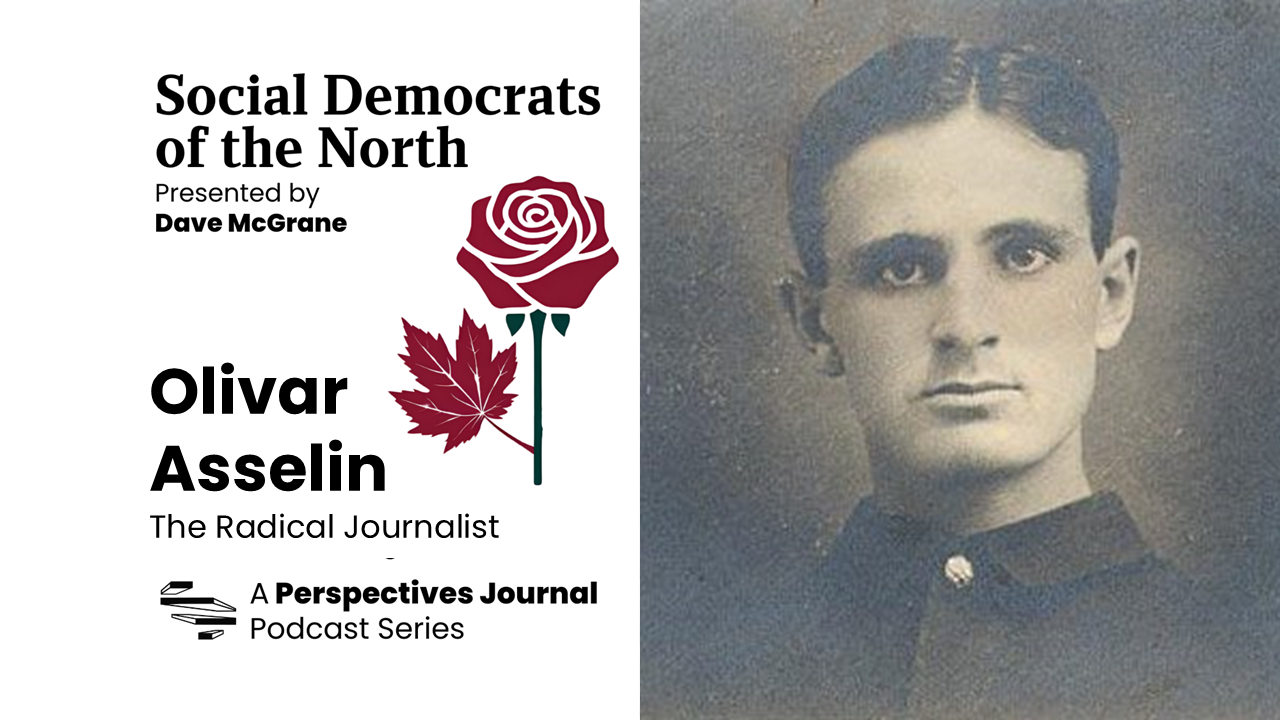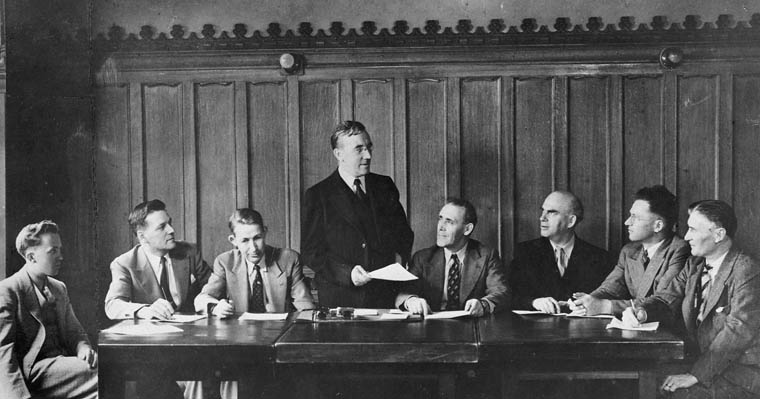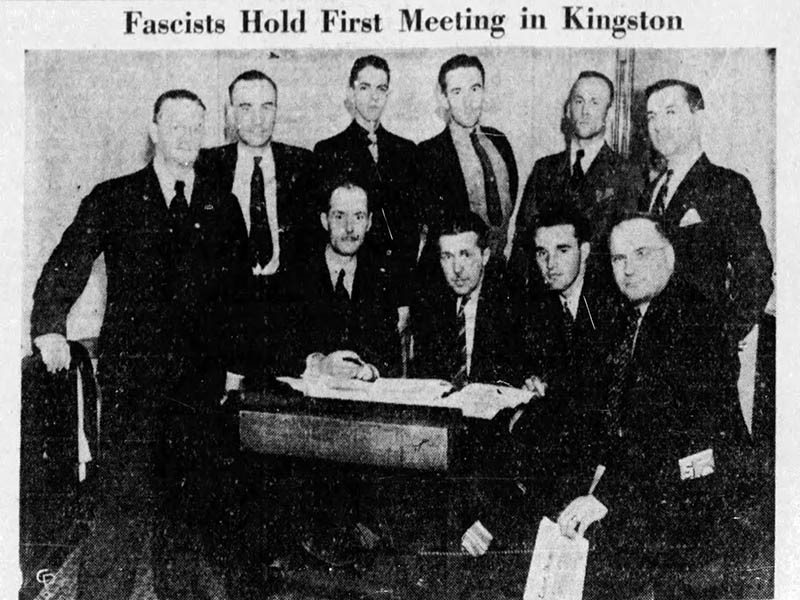In the wake of by-election campaigns in Winnipeg and Montreal, now is an opportune time for New Democrats to reflect on local-level campaign strategy. Certainly, political scientist Dave McGrane is right when he says in his book The New NDP that, “the ground game can only take you so far”. But what if the right kind of ground game can count for more than we realize?
We suggest that the answer is yes. Our argument is based on our combined experience canvassing in Ottawa-Centre for the 2018 provincial campaign.
Our NDP candidate Joel Harden defeated an incumbent Liberal cabinet minister, Yasir Naqvi, with 29,500 votes. This number was nearly triple the NDP vote in the previous provincial election. Naqvi received 21,000 votes, which would have been enough to win in any of the three previous elections if it weren’t for Harden. In 2022, the Ontario NDP lost seats, but Joel was re-elected with 30,311 votes and 54% of the total votes cast.
The recipe for the 2018 campaign
The 2018 Ottawa-Centre campaign model had two main ingredients. The first was Jill’s experience organizing tenants and low-income people with ACORN Canada.
The second was the momentum of democratic socialist politics in Britain, the United States, and Quebec at the time of Joel’s nomination. We were part of a cohort of NDP activists who consciously imported Bernie Sanders’ “big organizing” and drew inspiration from persuasion canvassing practices in the British Labour Party.
We did an event with some of our international contacts in the winter of 2018 that was discussed in the British social democratic journal Renewal . Meanwhile, the older generations of activists from our community drew parallels to decades-old Ontario NDP practices which were never quite forgotten—but which have lost ground in the age of ‘political marketing.’
We lead with concise, issue-based scripts designed to make the campaign relevant to people who don’t necessarily care about politics. With voters like this—and traditional non-voters—it is much more effective to ask for support based on an issue, rather than talk about the candidate, or any kind of “inside baseball.”
Ostensibly ‘market-oriented’ communications products, such as attack-ad leaflets, are set aside. People are so saturated by this type of thing that they tune it out. The upside, as Catherine Dorion has recently argued in Les Têtes Brûlées, is that they are starved for authenticity, and know it when they see it.
The Knock and Script Routine
We keep the script very brief. Then we stop and ask people what they think. We make sure to listen. We take some time to persuade, including with non-voters. We move people up the ladder of engagement with event invites and volunteer asks. In all cases, we ask for home numbers, cell numbers, e-mail addresses, and additional voters in the household. We train volunteers to do this effectively and consistently.
Crucially, we do not skip doors. Our field programme is all about data collection and list-building. We have seen non-voters turn into supporters at the door when we tell them we are campaigning on welfare rate increases, tenant protections, and other policies that touch them personally. We only skip doors where the person is an explicit non-supporter or has asked not to be contacted. In 2018, we asked soft supporters and undecideds to both donate and volunteer and some did, eventually becoming strong supporters.
We routinely meet supporters who are not on the existing voters list, especially in neighbourhoods with high rental turnover and younger populations. Tenants, low-income people, non-voters and young people are often highly receptive to persuasion efforts and engagement asks. In parts of Ottawa and Montreal, your odds of meeting supporters are stronger knocking doors indiscriminately than by following any kind of list that the NDP database produces.
Volunteers: the heart of the campaign
We do not send volunteers to the same doors in ‘strong’ polls over and over, searching for uncontacted names on the list. This is an inefficient use of resources and ends up oversaturating the same small segment of the population. It is also awkward for volunteers, who instinctively want to talk to more people and grow the party. We can afford to focus less on targeting because we are building a large-scale voter contact machine. As Jill often says: “if you’re not growing, you’re dying.”
Volunteers are at the very heart of this approach and must be treated as such. The campaign manager or voter contact organizer is on the phone every day, talking to them one-on-one. Canvasses are often “hosted” by volunteers, supported by campaign staff, in different parts of the riding. These and other campaign events are often promoted on social media, on the phones, and even on the doors.
In Ottawa-Centre in 2018, we did a full training session at every canvass. This included a rehearsal of a voter interaction, complete with persuasion and data collection. Every canvass kit included a ‘comeback sheet’, which was continually revised based on volunteer feedback and ongoing events. Volunteers were always sent out in pairs, and new volunteers were paired with the candidate when possible.
The point of these sorts of practices is to build confidence and favorize retention by making people feel included and invested in. Frequent training sessions also act as quality control and skill refinement opportunities for experienced volunteers, who learn to expect them. We check out with every volunteer at the end of every shift.
If we buy any ads, it’s to promote major campaign events. We prefer to pour money into direct voter contact by hiring our own staff canvassers, and by doing rigorous quality control with them through tools like tally sheets. Staff canvassers can support the volunteer operation by graduating to field organizer roles. We try to build people up to become leaders on future campaigns.
Our experience in Ottawa has taught us and others that the right kind of local campaign can make a difference. When we have an ambitious and principled platform to take to the doors, we can do ground game like no other party can.
References
Click to expand for a full list of references cited in this article.
Bond, Becky, and Zak Exley. Rules for Revolutionaries: How Big Organizing Can Change Everything. Chelsea Green Publishing, 2016.
Dorion, Catherine. Les têtes brûlées. Carnets d’espoir punk. Montréal, Lux éditeur, 2023.
Klug, Adam, and Emma Rees. “Big politics, big organising, and internationalism: How the left can win.” Renewal 26, no. 3 (2018): 50-60.
Leonard, Tom. “Victory for socialist Joel Harden in Ottawa-Centre.” Socialist.ca. June 11, 2018. Victory for socialist Joel Harden in Ottawa | socialist.ca
McGrane, David. The New NDP: Moderation, Modernization, and Political Marketing. Vancouver, UBC Press, 2019.





